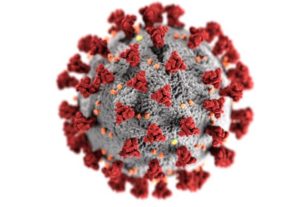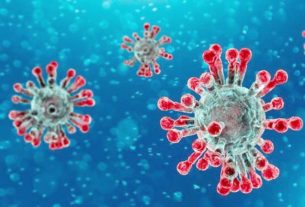From Our Bureau
23RD JUNE 2020
The Corona Virus (COVID-19) pandemic situation remained grim globally, with the confirmed cases across the world soaring to 89,93,659 and the death toll reaching 4,69,587 in the 216 affected countries and territories, according to the latest update from the World Health Organization (WHO).
Globally, American region continued to be the worst-hit with 44,37,946 confirmed cases and 2,24,207 deaths. Europe came next with 25,62,642 confirmed cases and 1,93,794 deaths. Eastern Mediterranean region reported 9,33,052 confirmed cases and 20,997 deaths.
South-East Asia region’s tally stood at 6,20,115 confirmed cases and 18,119 deaths. Western Pacific region recorded 2,06,948 confirmed cases and 7,329 deaths and African region registered 2,32,215 confirmed cases and 5,117 deaths. WHO Risk Assessment at global level remained very high.
On 27 June, WHO Director-General Dr Tedros will join other global leaders and artists in the Global Goal: Unite for Our Future campaign, concert and summit, being organised by Global Citizen in support of the global COVID-19 response. The event will provide governments, corporate leaders and philanthropists with a platform to make their commitments towards the fair distribution of tools and treatments for COVID-19. WHO’s Regional Office for the Americas has been chosen as a regional implementing partner.
WHO Director-General Dr Tedros, in his regular media briefing, urged countries to double down on the fundamental public health measures, while facing the delicate balance between protecting their people and minimizing the social and economic damage caused by the pandemic. “It’s not a choice between lives and livelihoods. Countries can do both,” he observed.
Subject in Focus: Sports events and COVID-19: from lockdown to a new start
On 18 June 2020, WHO’s Information Network for Epidemics (EPI-WIN) hosted a webinar on “Sports events and COVID-19: from lockdown to a new start.” It was attended by over 500 participants from across all six WHO Regions.
Sport promotes physical activity, health and community engagement. It also plays a significant role in local and national economies and supports a range of livelihoods. Sport’s reach and appeal cannot be underestimated: for example, it is estimated that there are some four billion football fans around the world. Sports venues serve a wider economic and social function not limited to sports events, including through hosting music concerts and other functions.
However, during the COVID-2019 pandemic, many countries have implemented public health and social measures that restrict or prohibit mass gatherings, including the participation in and attendance of sports events. As these measures are relaxed in several countries, how should national governments, sports associations, teams and venues move towards a “new start”, while ensuring the health and safety of all involved?
The webinar featured speakers from WHO headquarters and regional offices; the International Olympic Committee (IOC); the National Institute for Communicable Diseases of South Africa; the Adelaide Oval sports ground in Australia; the Federation Internationale de Football Association (FIFA); Flinders University Australia; Griffith University Australia; and World Rugby.
Resuming sports events and reopening venues depends on a number of factors, ranging from the current epidemiological situation and existing public health measures recommended by authorities, to the expected size of crowds and venue capacity for individual events. Decisions on if and how events should go ahead must be based on a risk assessments including all these factors, and the decision-making process should be sufficiently flexible to account for the changing context.
Although the various sports are very different in nature, the advice WHO has to offer is the same: the decision if an event can proceed or be cancelled should always rely on a risk-based approach. This includes three pillars: risk evaluation, risk control and mitigation, and communication of risk and decisions to stakeholders. To support this process, the WHO has published a set of risk assessment tools, which several partners further adapted for specific purposes.
Panelists discussed what measures can be implemented to eliminate or mitigate the risk of transmission. While some sports leagues have held matches without spectators, venues in other countries have reopened with a range of measures in place, including: restricting the number of spectators per square meter to facilitate physical distancing; installing handwashing stations; limiting congregation in entrances and exits; and use of mobile electronic ticketing.
At the Adelaide Oval, for example, the numbers of spectators are limited through an online lottery, and messages are sent three hours before each event to remind them of their responsibility to not attend if they experience any symptoms of COVID-19. All these measures must also take into consideration how spectators travel to and from the venue.
Sporting federations such as the IOC, FIFA and World Rugby have a key role to play in assessing risks and setting standards. For its part, World Rugby published its recommendations for a Safe Return to Rugby in the Context of the COVID-19 Pandemic on 27 April 2020.
Being a contact sport, rugby carries an inherent but limited risk of COVID-19 transmission between players, and World Rugby has taken the lead in assessing these risks and developing guidelines for safe training and matches. Other federations, such as the IOC, are involved in multiple different sports each with their own considerations for risk mitigation strategies.
Responses to past infectious disease outbreaks can inform approaches to confronting the risks posed by COVID-19. The panelist from the National Institute for Communicable Diseases of South Africa described the experience of South Africa ten years ago as it prepared to host the 2010 FIFA World Cup, which drew in around four million spectators and 350,000 foreign visitors.
At the time, the H1N1 (2009) influenza virus pandemic had been declared a Public Health Emergency of International Concern, while the country was also experiencing a measles outbreak with 17,000 cases. Risk reduction measures included a measles mass vaccination campaign which was completed in early 2010 and strengthening of the country’s national infectious diseases surveillance programme.
Measures to bring about a “new start” for sport in the wake of the COVID-19 pandemic should be developed in consultation with legal, public health and occupational health experts, and with specific consideration to the epidemiological context, the type of sports events in question, and the characteristics of the venues where they will take place. (eom)


